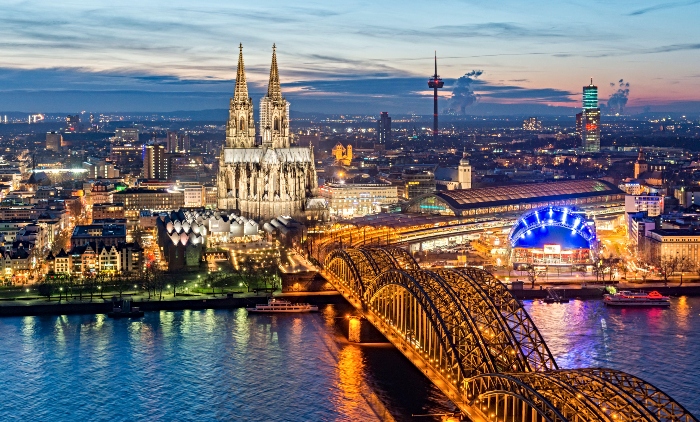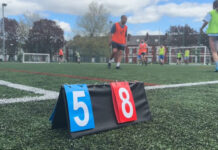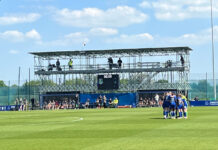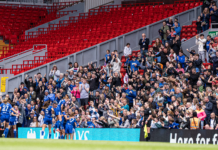A flip of a coin separated Liverpool and Cologne on this Wednesday in 1965, at least in football terms.
A call of ‘tails’ from Liverpool captain Ron Yeats proved decisive after 300 minutes of football failed to separate the English and German powerhouses.
Even the coin toss required a ‘re-flip’.
Yeats recalled: “Up it went and Christ didn’t it stick in a divot! I said to the referee ‘you’re going to have to re-toss the coin’.
“I thought the German captain was going to hit him!
“He was going berserk because it was falling over on heads. Up it went again, came down tails.”
The 1963/64 season had crowned Liverpool English Champions for the sixth time and FC Köln inaugural Bundesliga winners.
A highly anticipated first leg in Cologne ended in an anti-climactic 0-0 before a snowstorm forced a postponement of the return leg at Anfield.
The cancellation was a financial blow to the German outfit who had forked out 10,000 DM on travel expenses.
A fortnight later, the rescheduled tie again ended in stalemate in what was regarded as one of the most spectacular defensive displays of football by Köln.
German goalkeeper Toni Schmacher received personal congratulations from the Mayor of Liverpool Luis Caplan for his heroic efforts.
A third meeting was played out on neutral turf at the Feyenoord Stadium in Rotterdam on March 24th, this time with goals.
Ian St John and Roger Hunt first half strikes for Liverpool were cancelled out by Karl-Heinz Thielen and Johanns Löhr as Georg Knöpfle’s side hit back.
Finishing 2-2 after extra-time, and with penalty shoot-outs still five years away, eyes turned to Belgium referee Robert Schaut as the tie was sealed in Liverpool’s favour.
Bill Shankly’s men would go on to lose 4-3 on aggregate in the semi-final to eventual European Cup Champions Inter Milan.
Beyond football
The two cities’ inseparable nature extends beyond the pitch, however.
Cologne has been twinned with Liverpool since 1952, a relationship forged to boost trade and prosperity between the two countries following World War II.
It is thought to be the first official twinning between a British and German city.
Just as the Mersey splits Liverpool and the Wirral, Cologne occupies both sides of the Rhine and boasts the second largest port in Germany.
Renowned not just for their spectacular waterfronts but also as important cultural centres for contemporary art.
Exchange projects including ‘Art from Köln’ and ‘Eight Days a Week’ saw sustained momentum for many years prior to the Brexit referendum in 2016.
Both are vibrant student-bustling cities whose homegrown citizens speak their own unique dialects of ‘Scouse’ and ‘Kolsch’.
Similarities can even be observed between the cities’ skylines with imposing cathedrals and sky-towers dominating the landscape.

Brexit has thrown a political curveball at future relations with the EU, threatening to affect trade and tourism.
However, Claudia Neumann, Head of Communications at the Cologne Tourist Board was surprised to see the British tourism market holding firm.
She said: “Britain is still one of our most important source markets for Cologne, we expected other things.
What makes Cologne different from other German cities is the way of life. People are very open-minded, easy going, and welcoming.”
As 1965 reminds us, it will take more than a controversial decision to break the bond between these twinned cities.
















